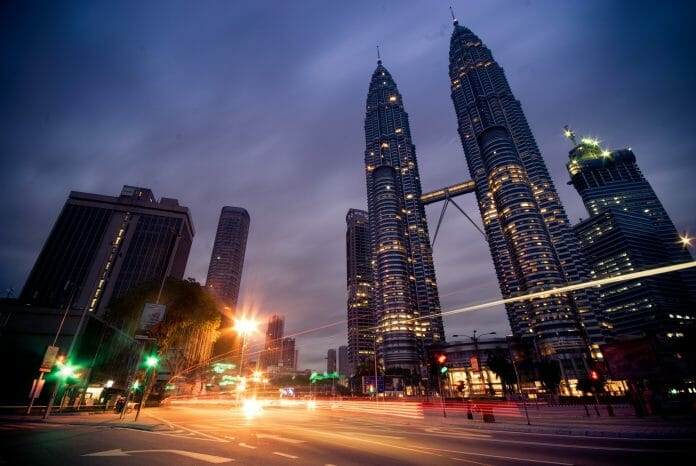The worrying intensity of escalating tensions in the local political scene in light of the coming state polls poses a significant threat to Malaysia’s economy, potentially haemorrhaging the government’s efforts to promote healthy growth and development; the repercussions of which threaten devolve into long-term stagnation—hindering substantial economic resuscitation after years of strain. Malaysia must enhance efforts to prevent the cyclical-like tensions that arise disastrously during electoral seasons in order that this pattern of politicking is resolutely squashed. Political turmoil in the country, if left unaddressed, could also weaken the country’s institutions—damaging democracy and inadvertently allowing for political opportunities to leverage these weaknesses to advance harmful and Machiavellian-like offensives.
It is precisely during these turbulent episodes in which dangerous sentiments are fanned with the purpose of stoking conflict that the Malaysian economy is particularly susceptible to economic, social, and political issues. It ought to be a national priority therefore that Malaysia puts an end to all means of politicking so as to maintain harmony.
Dr Azmi Hassan, senior fellow of the Nusantara Academy for Strategic Research, was quoted to have said that the “use of 3R (race, religion and royalty) sentiments to fish for votes had led to the political divide in the country.” This continuous political turmoil, which is already emblematic of Malaysia’s problematic polarization and is deeply embedded in the country’s sociopolitics, could bleed into the future. In a conversation with the New Straits Times, Dr Nik Ahmad Kamal Nik Mahmood warned that such issues could “haunt Malaysia for the next 100 years.” The primary concern that revolves around the presence of political conflict is the detrimentally negative influence it causes to foreign direct investment (FDI), bringing about a decline in long-term investor confidence as a result of uncertainty. This It could also hamper efforts to improve relations between Malaysia’s diverse racial groups and improve social unity as revived controversies used as political contraptions to secure electoral votes.
The nature of the political rhetoric that so often characterizes these tensions during Malaysia’s electoral episodes have the capacity to inspire social unrest, dangerously perturbing the societal psyche to the brink of retaliatory violence. The perceived uncertainty that this could cause limits the degree to which foreign investors view as a viable destination for investment. Political controversies significantly affect national stability as it causes volatility. Substantial political, social, and economic improvement can only be achieved if it achieves a desirable consistency and is not affected or influenced by erratic episodes of politicking.
The Malaysian authorities ought to therefore establish strategic policies that counteract the influence of political conflict so as to regain the trust of investors and demonstrate ardent commitments to modernization and development; thereby increasing economic development. It is also incumbent on the authorities to enhance these efforts so as to assure the Malaysian people of their security and to protect societal harmony at large; avoiding societal rifts and tensions.
Malaysia requires important systemic and institutional reforms that inhibit the influence local politics has on the country’s national stability. This is best achieved through the strict upholding of its democratic values and principles. An important step towards improvement in this area is to prevent the flow of disruptive disinformation campaigns intended to cause division.
The Malaysian authorities ought to establish new initiatives that ensure that clarifications are made immediately accessible to the public when harmful rhetoric is employed. It is important that the authorities not only think in terms of stricter penalties, which is unequivocally crucial to stymie local politicking, but proactively reach out to the Malaysian public with appropriate responses in order that they are able to acquire truthful and objective information through the release of statements that seek to clarify and inform. This will reinforce Malaysia’s dedication towards the practices of an uncompromising democracy that regulates the flow of information in the country; thereby ensuring that old controversies, spiteful conspiracies, and dangerous rhetoric are nullified. The release of such public statements could ensure that false information is swiftly countered and harmful statements are discouraged. These efforts have been utilized by the authorities in some areas but it must also have its extensions in the political scene for politicking to be comprehensively tackled and addressed.
Political controversies are often galvanized so as to play on tendentious sensitivities to sway voters and often rely on fallacious and outright provocative disinformation campaigns. This intentionally creates significant collateral damage as these controversies are almost always based on false and harmful notions; possessing shock value intended to provoke visceral reactions from the Malaysian people.
The protection of the country’s democratic is indispensably important in the progress towards the elimination of politicking. A fundamental tenet of democracy is the refusal to acquiesce or surrender to malicious forces that threaten to destabilize national stability and to preserve the interest of the public good. An imperative in this area of concern therefore is to for the authorities to equip the people with appropriate information during times of disinformation, instigated by proponents of politicking as the Malaysian people have a right to the truth when they are confronted by confusion and pernicious rhetoric.
The authorities must reconsider its approach as present efforts have not only proved to be inefficient but have inadvertently incentivized continuous acts to take place due to the perceived lack of institutional defences set in place to dismantle harmful political rhetoric. An end to the country’s pattern of politicking in pivotal moments must be brought about in order to guarantee the future of Malaysia’s democracy and its immunization against the manipulative machinations of political propagandists who mercilessly prey on the country’s vulnerabilities. By breaking the cycle completely, Malaysian national stability can be better maintained.
By Pravin Periasamy, Student Researcher at Sunway University









